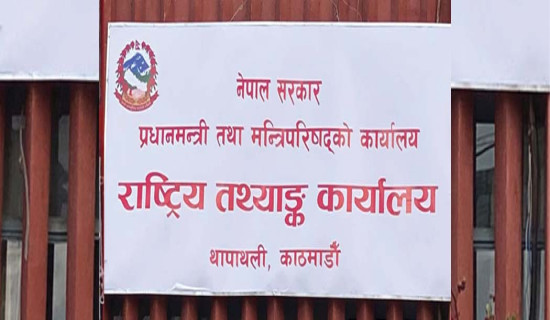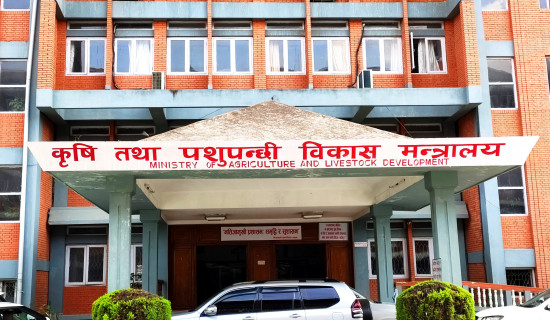- Thursday, 19 February 2026
Gen Z movement losses strain public finances
The nationwide protests on September 8 and 9, led primarily by youth groups, have resulted in significant human, physical, and economic losses, with long-term implications for governance, economy, and social systems.
Capital spending sits at 15%, deficit hits Rs. 119B
The government’s capital expenditure has remained sluggish in the first seven months of the current fiscal year 2025/26, with spending reaching only 15.62 per cent of the allocated amount as of February 12.
Budget revised post-Gen Z movement, spending estimates cut to Rs. 1,688 billion
The government has revised the budget for the current fiscal year 2025/26 by reducing its expenditure estimates. With half-yearly review
Infant, child mortality remain serious public health concerns
The Nepal Multiple Indicator Cluster Survey (NMICS) 2024-25) reveled that infant and child mortality rates in Nepal remain a serious public health concern, with significant disparities across provinces. According to the survey
Remittance boosts Nepal’s external sector
Nepal’s external sector showed strong improvement in the first half of the current fiscal year 2025/26, driven by a sharp rise in remittance inflows, a robust current account surplu
Gold hits unprecedented highs amid global turmoil
Gold price, which was on constant rise in recent months, has, of late, skyrocketed in local and international markets. It has jumped to unprecedented Rs. 340,000 per tola in the Nepali market on Thursday.
Cardamom exports surge on higher prices, output
Nepal’s export of large cardamom, one of the country’s major agricultural export commodities, recorded significant growth during the first half of the current fiscal year 2025/26, driven by higher prices and increased production.
Gold price crosses Rs. 300,000 per tola
The price of gold in Nepal surged to a historic high on Friday, crossing the eye-popping mark of Rs. 300,000 per tola for the first time, reflecting strong spillover effects from soaring international prices and rising global economic uncertainty.
Decline in paddy production puts rice self-reliance at risk
Both the production and productivity of paddy have declined in the current fiscal year. According to the preli
JICA Volunteers Strengthening Communities
The Japan International Cooperation Agency's (JICA) volunteer programme is playing a significant role in Nepal, with dedicated Japanese volunteers actively engaged at the grassroots level. Thei
581.41B revenue collected in 1st half of FY
The government’s revenue collection during the first half of the fiscal year 2025/26 has fallen significantly short of its target, raising concerns over mounting fiscal pressure in the remaining months of the year.
Kul Man chosen chair of Ujyalo Nepal Party
Newly appointed Chairman of the Ujyalo Nepal Party, Kul Man Ghising, has said that his party was betrayed after the merger process with the Rastriya Swatantra Party (RSP) broke down. At a press conference held on Saturday evening, Ghising accused the RSP of keeping his party entangled for 12 days, encouraging its cadres to join, and ultimately breaking the unity process. According to Ghising, many unwritten agreements were made during the merger talks, and the Ujyalo Nepal Party did not have any major demands. “We only wanted the agreements to be implemented.” He claimed that the media was completely wrong to report that his party had bargained for positions.
Poverty rate above national average in more than half of local levels
The significant disparities continue to exist in degree of poverty across Nepal’s local levels and districts, according to the Small Area Estimation of Poverty, 2023 released by the National Statistics Office (NSO) on Friday. The report shows that out of 753 local levels, 309 have poverty rates lower than the national average of 20.27 per cent, while 444 local levels have poverty levels above the national figure.
Garlic price triples in three weeks
Consumers in the Kathmandu Valley have been hit hard by a sharp rise in garlic price over the past three weeks, with retail prices climbing to as high as Rs. 700 per kilogram. According to consum
Nepal adopts modern data system with first agriculture survey
In a major institutional shift aimed at strengthening evidence-based policymaking, the government has launched Nepal’s first-ever Annual Agricultural Survey using statistically validated and technology-driven methods.

















